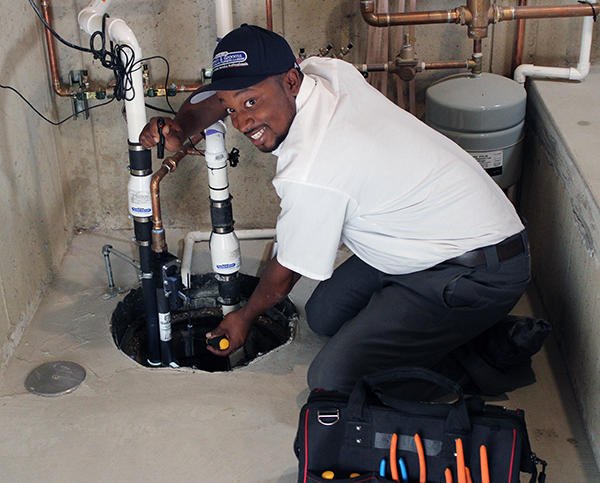Comprehending the Trick Elements of Effective Water Filtration Equipments

Value of Water Filtration Systems
Water purification systems play an essential role in guaranteeing accessibility to clean and secure alcohol consumption water by effectively eliminating pollutants and contaminants. These systems are important in dealing with the growing issues over water high quality and the prospective health and wellness risks connected with eating contaminated water. By using different filtering mechanisms such as reverse osmosis, activated carbon, and UV sanitation, water filtering systems can efficiently remove harmful materials like germs, viruses, heavy steels, and chemicals from the supply of water.
Additionally, water purification systems assist to boost the taste and smell of water by getting rid of chlorine, debris, and various other toxins that can influence its top quality. Water Softeners. This enhancement in water quality not only makes it much more tasty yet likewise urges individuals to consume a sufficient amount of water daily, advertising much better hydration and general health and wellness
Kinds Of Filtration Components

Physical filters are created to literally strain out pollutants from the water. These filters can be made from products like ceramic, carbon, and even sand, and they work by capturing bits bigger than the filter's pores as water travels through.
Chemical filters make use of various chemical processes to eliminate impurities from the water. Examples include activated carbon filters, which adsorb impurities, and turn around osmosis membranes, which utilize pressure to different impurities from the water.
Organic filters make use of living microorganisms like algae or germs to damage down natural issue and contaminants in the water. These filters are often utilized in wastewater therapy plants or natural water filtration systems.
Comprehending the various sorts of filtration components is crucial for selecting the most appropriate water filtration system for specific filtration needs.
Function of Sediment Filters
Sediment filters play a critical function in water filtration systems by effectively recording solid fragments put on hold in the water. These filters are usually the very first find out line of protection in a click here for more purification system, getting rid of larger bits such as sand, silt, dust, and rust prior to the water moves with finer filtration phases. By capturing these debris, the filters stop them from getting to downstream elements, thus expanding the life-span and effectiveness of the entire system.
The function of sediment filters is vital in preserving water high quality and protecting delicate equipment from damage brought on by particles. Furthermore, by removing noticeable fragments, sediment filters improve the quality and taste of the water. Consistently cleansing or changing sediment filters is necessary to make certain optimum performance. Neglecting this upkeep can lead to obstructing, decreased water circulation, and jeopardized filtering performance. Generally, sediment filters are indispensable parts that add dramatically to the performance of water filtering systems.
Duty of Turned On Carbon Filters
Playing an important function in water filtering systems, activated carbon filters are important in eliminating pollutants and contaminants from the water supply. These filters are made to adsorb and trap a variety of pollutants, including chlorine, volatile natural compounds (VOCs), chemicals, and herbicides. The triggered carbon material has a big surface location, enabling the efficient capturing of pollutants through a procedure called adsorption. As water travels through the filter, the activated carbon holds and draws in onto the pollutants, guaranteeing that the water that appears beyond is cleaner and much safer for usage.
Turned on carbon filters are very reliable at enhancing the taste and smell of water by decreasing chemicals that can influence its high quality. Due to their versatility and reliability, activated carbon filters are a crucial element in making sure that water is cleansed to the greatest criteria prior to reaching consumers.
Recognizing Reverse Osmosis Equipments
Reverse osmosis systems are innovative water filtration systems that use an innovative procedure to remove impurities and impurities from alcohol consumption water. These systems function by applying pressure to the water, requiring it via a semi-permeable membrane layer. This membrane functions as an obstacle, permitting just pure water particles to travel through, while obstructing larger molecules such as minerals, chemicals, and various other impurities. Therefore, the water that appears beyond is significantly cleaner and much safer for consumption.
One key advantage of reverse osmosis systems is their capacity to get rid of a large range of pollutants, including heavy steels, liquified solids, infections, and microorganisms. This makes them extremely effective in enhancing the overall quality and safety and security of alcohol consumption water. In addition, reverse osmosis systems are reasonably low-maintenance and can be mounted under the sink or in a central filtration system, offering hassle-free access to tidy water throughout the house. Overall, comprehending just how reverse osmosis systems function can assist people make educated choices about article their water filtration needs.
Final Thought
In final thought, effective water filtration systems are vital for making sure tidy and secure drinking water. The crucial parts of these systems consist of sediment filters, triggered carbon filters, and reverse osmosis systems. By understanding the function and duty of each part, individuals can make educated decisions when choosing a water filtration system. It is very important to prioritize the high quality of water in order to promote total health and wellness and health.
Water filtering systems play an essential function in ensuring access to risk-free and tidy drinking water by effectively removing impurities and contaminations. By utilizing different purification mechanisms such as reverse osmosis, triggered carbon, and UV sterilization, water filtration systems can efficiently get rid of unsafe compounds like bacteria, infections, heavy metals, and chemicals from the water supply.
Debris filters play a critical role in water purification systems by successfully recording solid fragments suspended in the water (Pump repairs & installation).Playing a critical function in water filtering systems, turned on carbon filters are important in eliminating impurities and impurities from the water supply.Reverse osmosis systems are advanced water purification systems that utilize an innovative process to get rid of impurities and contaminations from alcohol consumption water